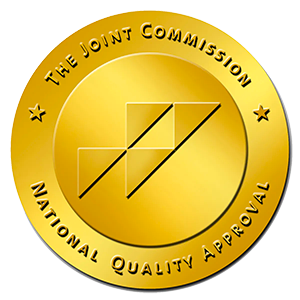By Bournewood Staff
The winter holiday season is upon us, and in the hustle and bustle of our daily lives, it’s easy to get caught up in the whirlwind of stress, anxiety, and negativity. But what if there was a simple yet powerful tool at our disposal to counter these challenges and boost our mental well-being? There is, and that tool is gratitude. Let’s explore the profound impact of gratitude on mental health and how incorporating it into our daily routines can lead to a happier and more fulfilled life.
There is a science behind it. Gratitude is more than just a polite response to a kind gesture; it’s a fundamental human emotion that has been studied extensively in recent years. Research in psychology has shown that practicing gratitude can have a significant positive impact on mental health. When we express gratitude, our brains release chemicals like dopamine and serotonin, which are associated with happiness and reduced stress. In fact, studies have found that individuals who regularly practice gratitude experience lower levels of depression and anxiety.
How Gratitude Benefits Mental Health
Reduced Stress. Gratitude can act as a powerful stress-reduction tool. When we focus on the positive aspects of our lives, we shift our attention away from stressors and anxieties. This mental reframing can help lower stress levels and improve our overall sense of well-being.
Improved Emotional Resilience. Gratitude can enhance our ability to cope with challenging situations. When we appreciate the good in our lives, it becomes easier to navigate adversity with a positive outlook, making us more emotionally resilient.
Gratitude helps us recognize our own worth and accomplishments. This can boost self-esteem and confidence, mitigating feelings of inadequacy or self-doubt.
Better Relationships. Expressing gratitude can strengthen social bonds. When we show appreciation to others, it fosters positive interactions and deepens our relationships, leading to a support system that can be crucial for mental health.
Enhanced Self-Esteem. Gratitude helps us recognize our own worth and accomplishments. This can boost self-esteem and confidence, mitigating feelings of inadequacy or self-doubt.
How can we cultivate and incorporate gratitude in our lives? Here are some strategies:
Keep a Gratitude Journal. Write down three things you’re grateful for each day. This simple practice can help you become more aware of the positive aspects of your life.
Express Gratitude to Others. Don’t hesitate to thank the people who have made a difference in your life. It can be a simple thank-you note or a heartfelt conversation.
Mindfulness Meditation. Incorporate gratitude into your mindfulness practice. Take a moment to reflect on the things you’re thankful for during meditation.
Focus on the Present. Pay attention to the here and now. Being mindful of the present moment can help you find gratitude in the little things in life.
Gratitude can be a powerful catalyst for good mental health. It’s a simple yet life-transforming practice. So, take a moment to reflect on the blessings in your life, and watch as gratitude works its magic on your mental well-being.
When everything is too much … If you or someone you know is feeling depressed, are experiencing anxiety, mood changes, increased substance use, or other symptoms that affect your daily functioning, you may need more targeted and intensive help. Bournewood is here for you. Our partial hospital programs are short-term outpatient treatment services that can get you back on more solid footing.
Call us at 800-468-4358. You’re not alone. Bournewood can help.


